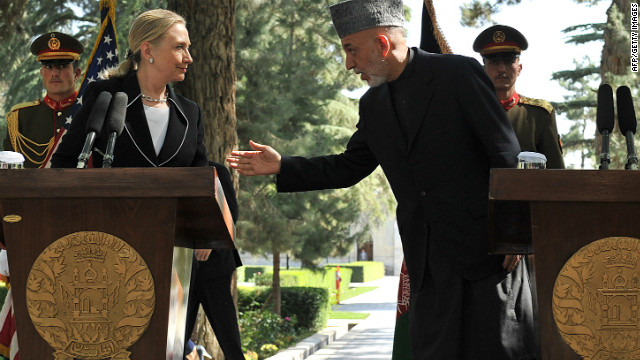
- Other nations including Japan, Pakistan and Egypt have non-NATO ally status
- The status allows Kabul and Washington to maintain defense relations
- Secretary of State Hillary Clinton makes the announcement in Kabul
- She says the designation is beneficial as U.S. troops withdraw
(CNN) -- The United States named Afghanistan a major non-NATO ally Saturday, clearing the way for the two countries to maintain a defense and economic relationship even as American combat troops withdraw.
U.S. Secretary of State Hillary Clinton announced the designation during a surprise visit to Kabul.
A day after the announcement, she will attend a gathering of international donors in Tokyo who will be asked to pledge financial support for Afghanistan after nearly all U.S.-led NATO troops pull out of the country by the end of 2014.
The relationship is beneficial during the transition as both nations prepare for post-2014, according to Clinton.
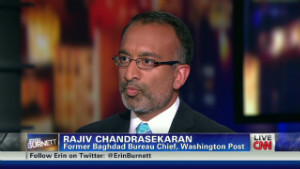 Report: Afghanistan war mishandled
Report: Afghanistan war mishandled 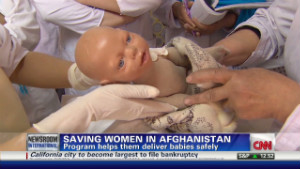 Program helps deliver babies safely
Program helps deliver babies safely 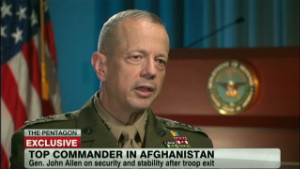 Part 2: U.S. plan for Afghanistan
Part 2: U.S. plan for Afghanistan 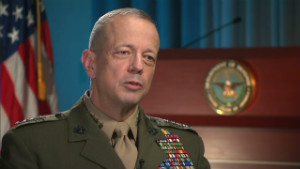 Top U.S. General's plan for Afghanistan
Top U.S. General's plan for Afghanistan "It will open the door to Afghanistan's military to have a greater capacity and broader kind of relationship with the United States, and particularly the United States military," Clinton told reporters in Kabul.
By granting such ally status, it makes Afghanistan eligible to receive military training and assistance, including expediting the sales and leasing of military equipment long after NATO troops leave.
"There are a number of benefits that accrue to countries that have this designation," she said. "They are able to have access to excess defense supplies, for example, and they can be part of certain kinds of training and capacity building."
Allegations: American generals delayed Kabul hospital abuse probe
The United States gave Afghanistan the designation as part of an Enduring Strategic Partnership Agreement signed in May by President Barack Obama and his Afghan counterpart, Hamid Karzai.
Afghanistan joins Japan, Pakistan, Egypt, Israel and Australia, among others, granted major non-NATO ally status by the United States. Unlike NATO allies of the United States, who are bound together by a joint defense pact, there is no mutual defense guarantee as a non-NATO ally.
Clinton made it clear the United States has no intention of abandoning Afghanistan after the troops withdrawal.
"We will continue, of course, to protect Afghanistan from any efforts by insurgents and outsiders to destabilize Afghanistan," she said.
Clinton and Karzai are headed to the meeting Sunday in Tokyo, where private and public donors are expected to pledge nearly $4 billion in aid for reconstruction.
During the news conference, Clinton also hinted at thawing U.S.-Pakistani relations, which were virtually frozen after the killing of Osama bin Laden, U.S. claims that Pakistan failed to crackdown on insurgents conducting cross-border attacks in Afghanistan and Islamabad's demand that Washington apologize for the killing of 24 Pakistani soldiers in November 2011.
Clinton apologized Tuesday for the killings, prompting Pakistan to allow trucks carrying supplies to NATO troops to cross from Pakistan into Afghanistan for the first time in seven months.
"We were struck by the recent call from Pakistan's parliament that Pakistani territory shall not be used for any kind of attacks on other countries, and all foreign fighters, if found, shall be expelled from Pakistani soil," Clinton said during the news conference.
"So we want to deepen our security cooperation with Pakistan."
Clinton said there would be a meeting on the "ministerial level" between Pakistan, Afghanistan and the United States at the Tokyo gathering.
The United States has not publicly said how much money it will pledge, though Clinton said Saturday that "of course the United States will be making a substantial commitment."
There are questions, though, about whether private and commercial donors will commit to large handouts without a guarantee that money won't be siphoned off by corruption rampant in Afghanistan.
Clinton told reporters that she was "encouraged by what she was hearing" about financial pledges at the Tokyo meeting, but conceded corruption was a major challenge.
Poverty and corruption are widespread in Afghanistan. It came in 172nd out of 187 countries in the United Nations' 2011 Human Development Index, which ranks nations based on life expectancy, education and living standards.
Questions were raised after the United Nations announced an investigation in June into its Afghanistan development fund that pays the salaries of Afghan police amid allegations of misuse of funds.
"We take seriously any allegations of corruption that involve U.S. funds, and we are working with the United Nations to support the steps they have said they would take to address the concerns raised by donors about allegations of mismanagement of the Law and Order Trust Fund."
Clinton said "mutual accountability would be discussed" at the meeting in Tokyo.
First NATO trucks move into Afghanistan from Pakistan after 7-month closure
CNN's Greg Seaby and Chelsea J. Carter contributed to this report.


